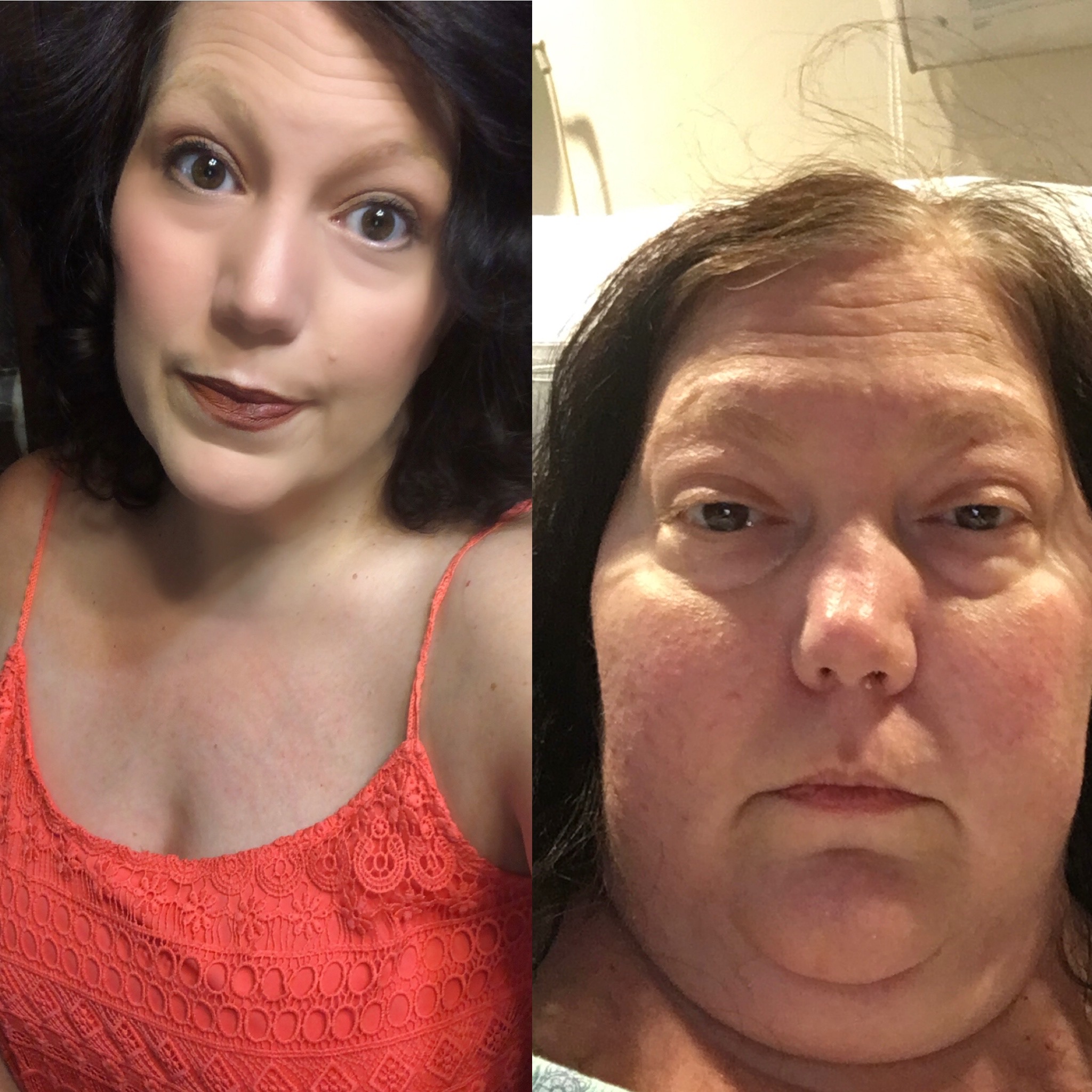This is me; and this is also me going through a Systemic Mastocytosis flare.

I posted the photo on Instagram to bring awareness to my disease. It is rare. Most, including doctors, do not understand the complexities.
About ten minutes later, a friend texted.
“I would never share a photo like that. I mean, you don’t look like you. Don’t you worry what people will think?”
Insert blank stare at phone.
The comment has been bothering me since they made it. In trying to understand why, I realize the nagging feeling in my gut is from even though I am dealing with high dosages of prednisone and chemotherapy and having IV epi administered to save my life.
All while now being wheelchair bound and learning to walk again.
I, as a woman, am still expected to look a certain way.
I’m expected to be pretty, even when facing death.
Many know I am a huge advocate for authenticity and self-love. Being, showing exactly who you are.
Mastocytosis is not pretty.
Anaphylactic shock is not pretty.
That is my reality.
I’ve written on how we as a nation need to challenge and change the conversation on body image. How the statistics clearly show there is an enormous problem surrounding it.
http://www.statisticbrain.com/body-image-statistics/
| Body Image Statistics | Data |
| Percent of all women who are unhappy with their bodies and resort to dieting | 91 |
| Percent of women who say the images of women in the media makes them feel insecure | 80 |
| Percent of college-aged girls who feel pressured to be a certain weight | 58 |
| Percent of girls in 1st through 3rd grade who want to be thinner | 42 |
| Percent of 10 year olds who are afraid of being fat | 81 |
| Percent of teenage girls who are, or think they should be, on a diet | 53 |
| Percent of teenage girls who reported being teased about their weight | 30 |
| Percent of teenage boys who reported being teased about their weight | 25 |
| Percent of 15-17 year old girls who want to change at least one aspect of their physical appearance | 90 |
| Percent of teen boys using unproven supplements and/or steroids | 12 |
| Percent of girls age 15-17 who acknowledged having an eating disorder | 13 |
| Percent of women who stated they would consider cosmetic surgery in the future | 40 |
| Percent of men who stated they would consider cosmetic surgery in the future | 20 |
Obviously, we still do.
In her making that comment I learned it was more important for me to be an object of desire than for me to share life experiences.
Ask Yourself
How do you think the behaviors and comments affect people suffering from serious and chronic illnesses?
While some like me are eager to tell our stories to anyone who will listen. It can make us feel less alone with our burdens and traumas.
We all have ideas about the pros and cons of sharing our stories, raising awareness, and “educating” people about disability. What we feel about it can change from day to day, from person to person, and situation to situation.
Some days, like today, the only way we get through is to be gentle with oneself.
Personally, I view gentleness as a choice, a powerful one. I choose to be gentle, but that doesn’t mean I’m a pushover. By making gentleness a conscious choice, I am making it my super power, instead of allowing it to make me a victim.
So, how does one be gentle?
Ignore the hater and still embrace common humanity
One of the wonderful outcomes of self-compassion is our enhanced sense of belonging, the feeling that we are all in this together.
While it may feel you’re alone, you are not.
Be kind to yourself
The best way to think about being kind to yourself is to think about a friend.
No, not that friend.
Tell Yourself, “I Am Enough!”
I’m enough, just as I am.
I’m worthy.
I am beautiful.
I don’t owe pretty to anyone.
For more information on Systemic Mastocytosis http://visit https://rarediseases.org/rare-diseases/mastocytosis/

